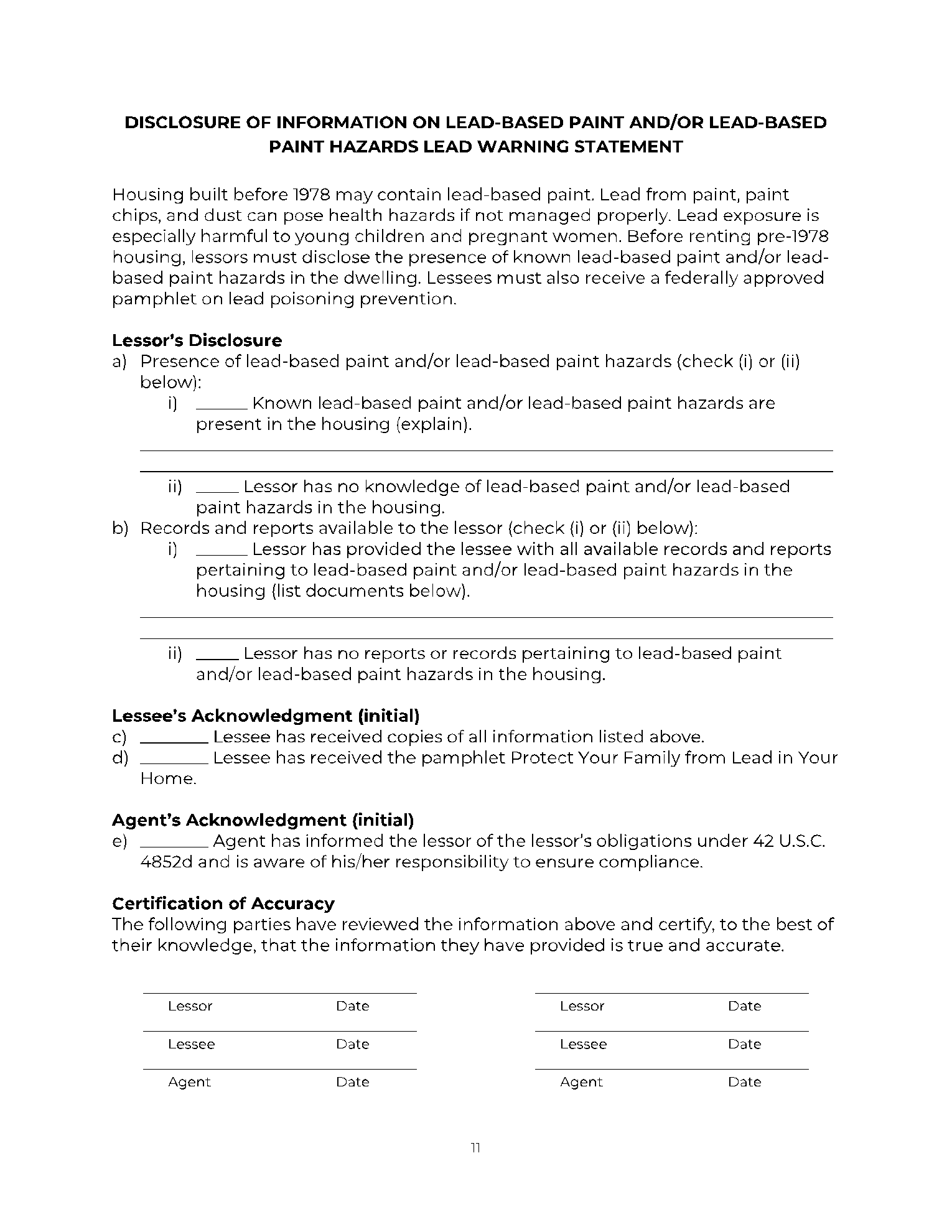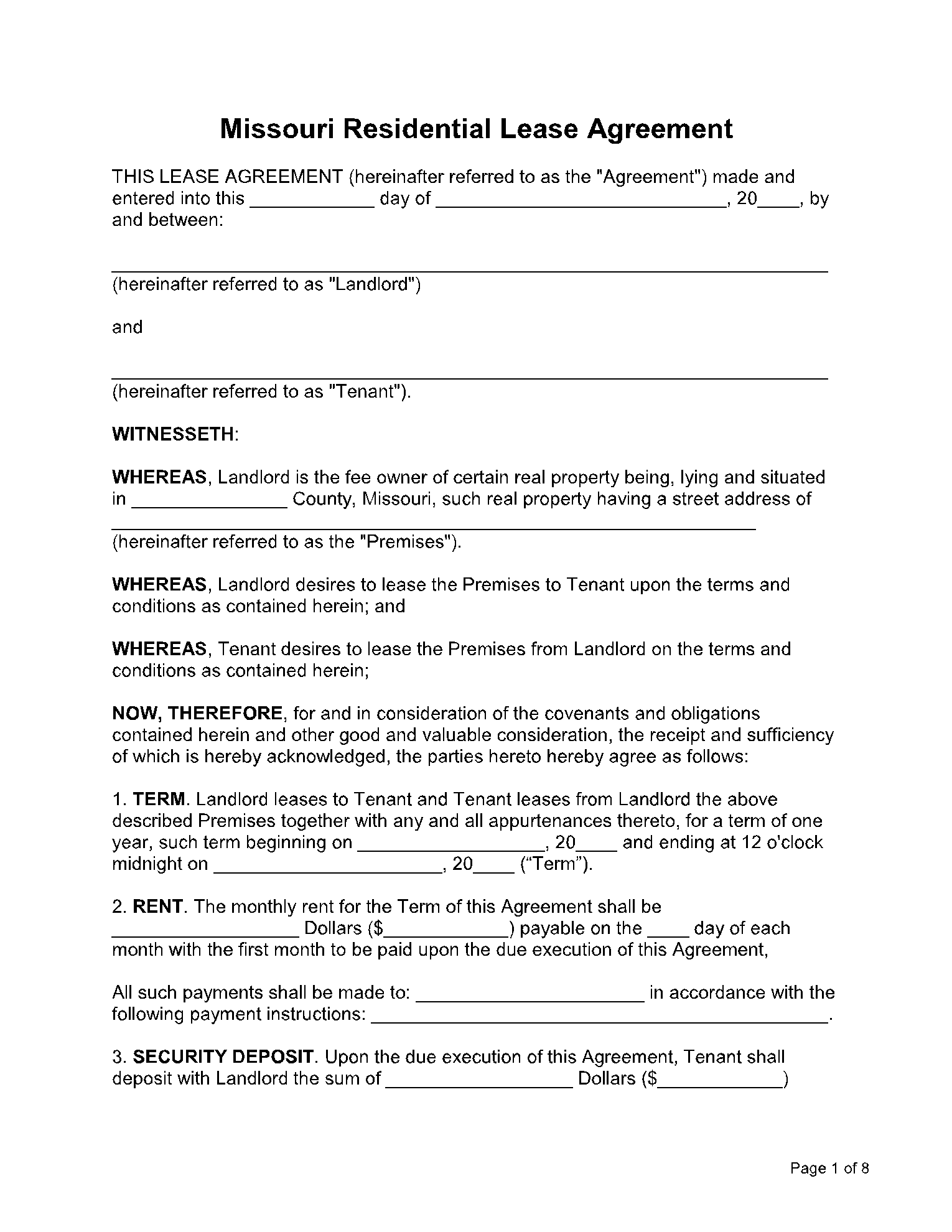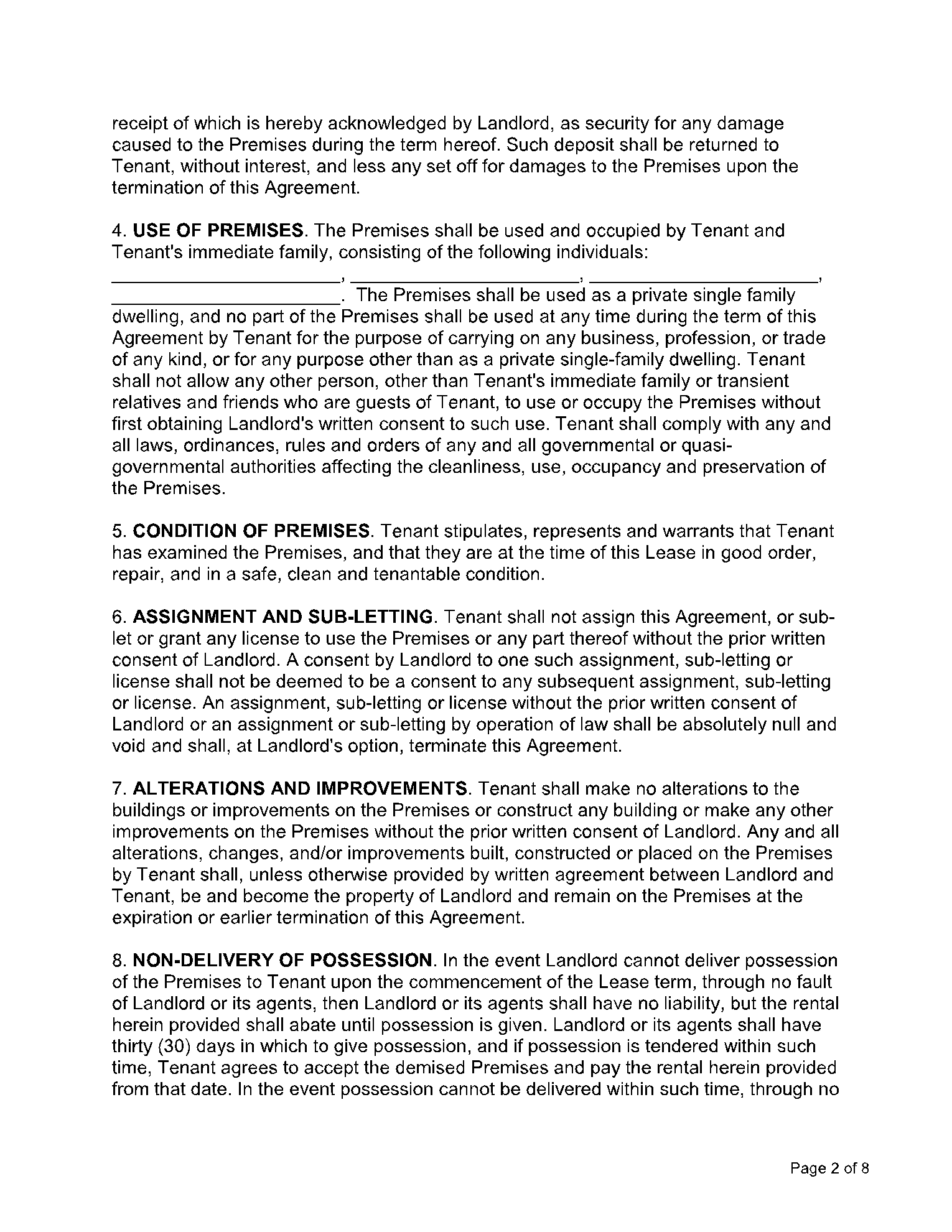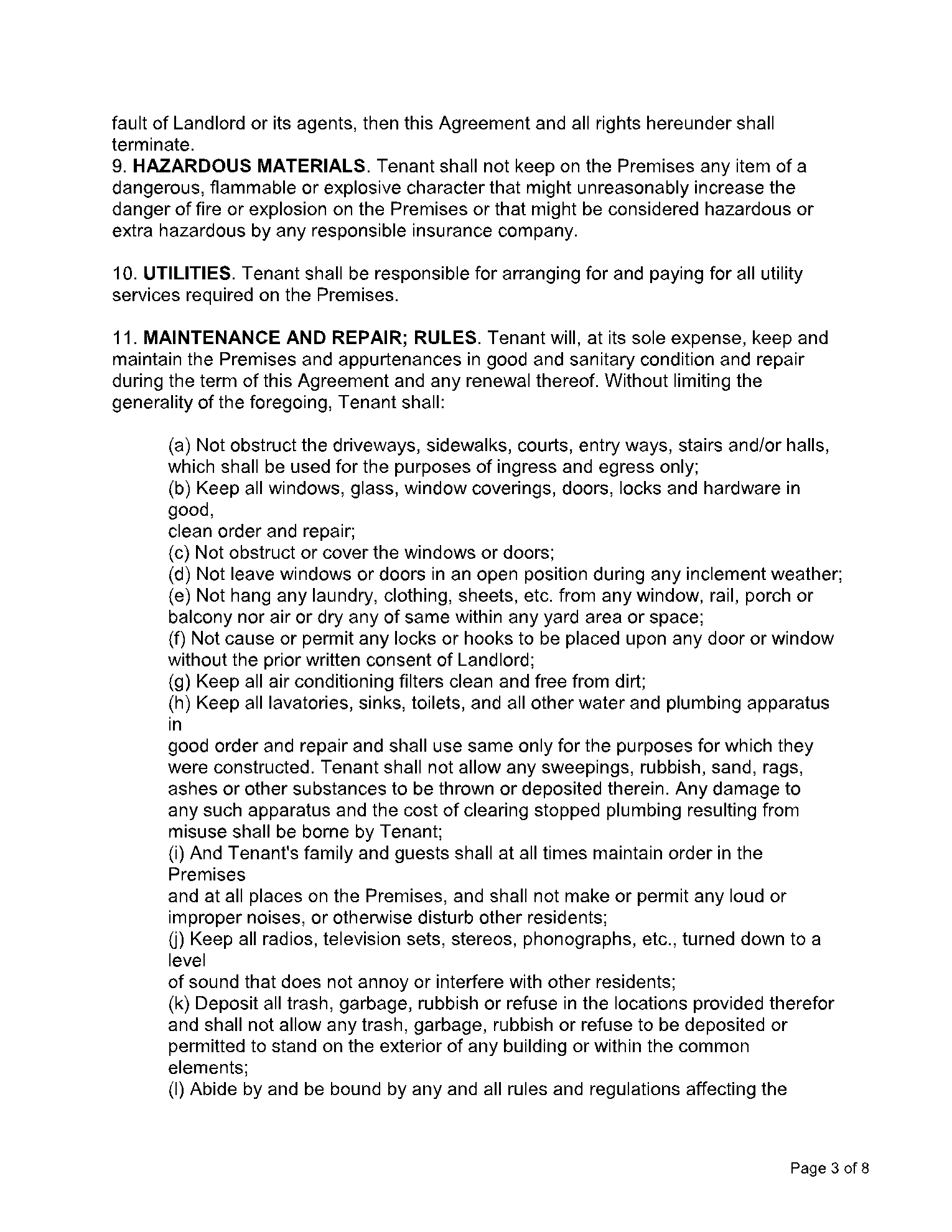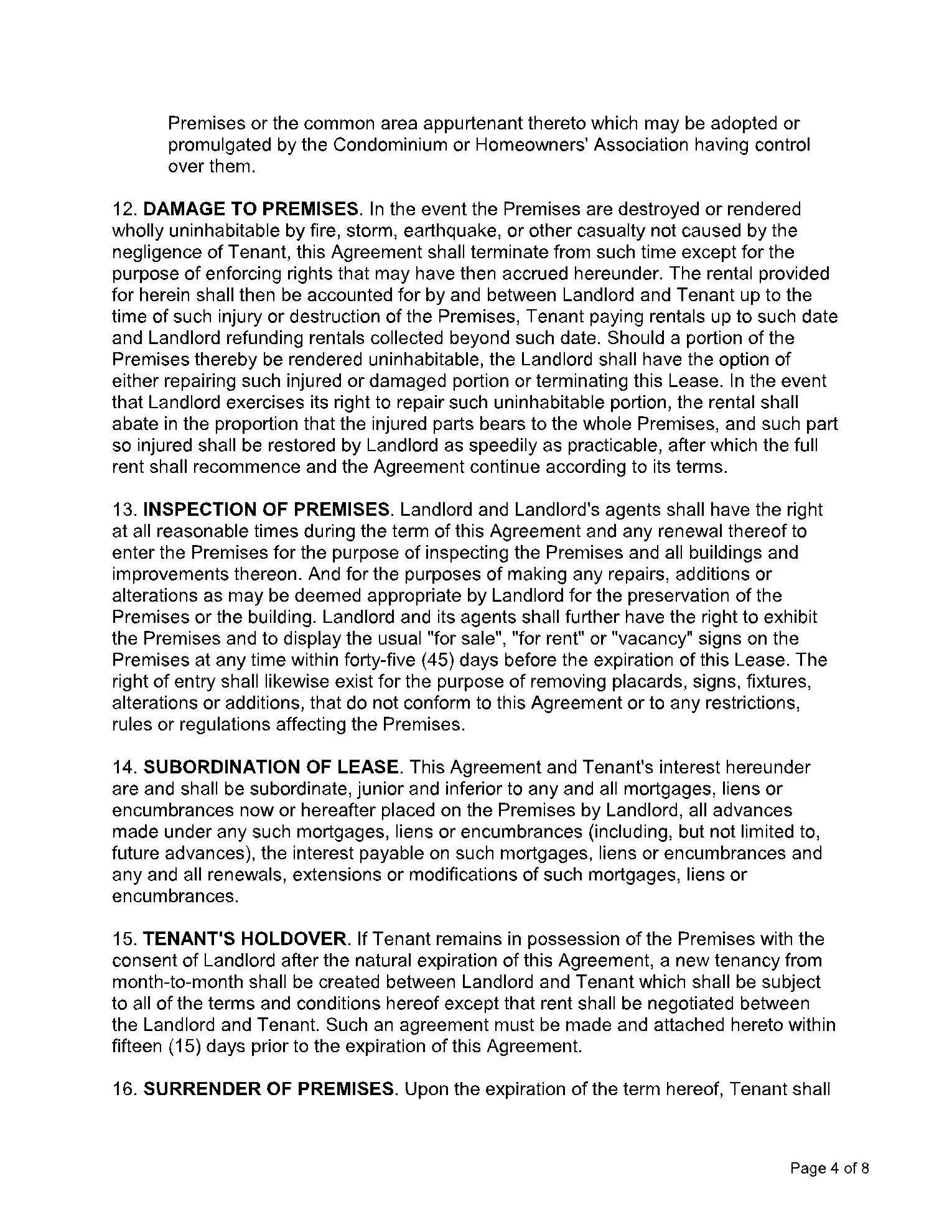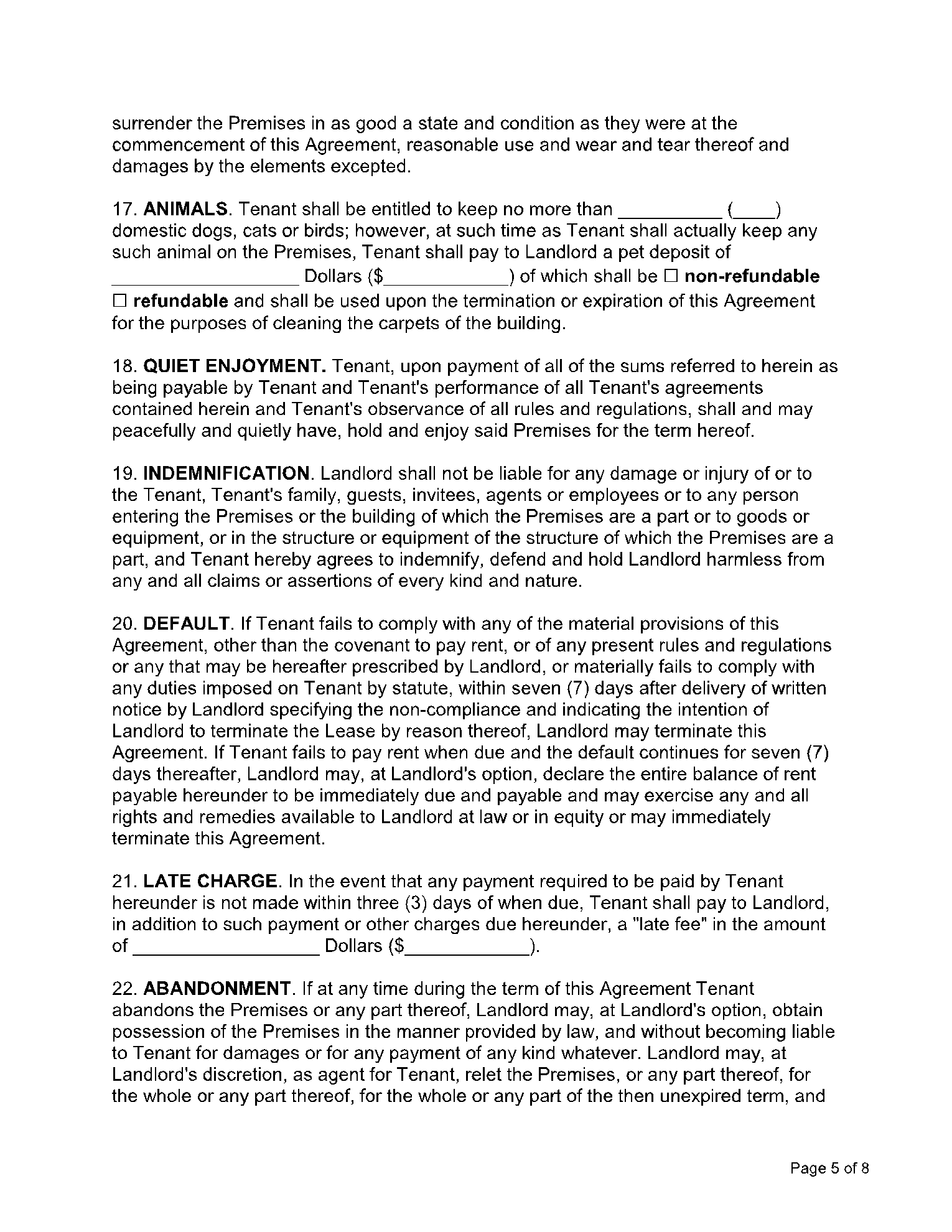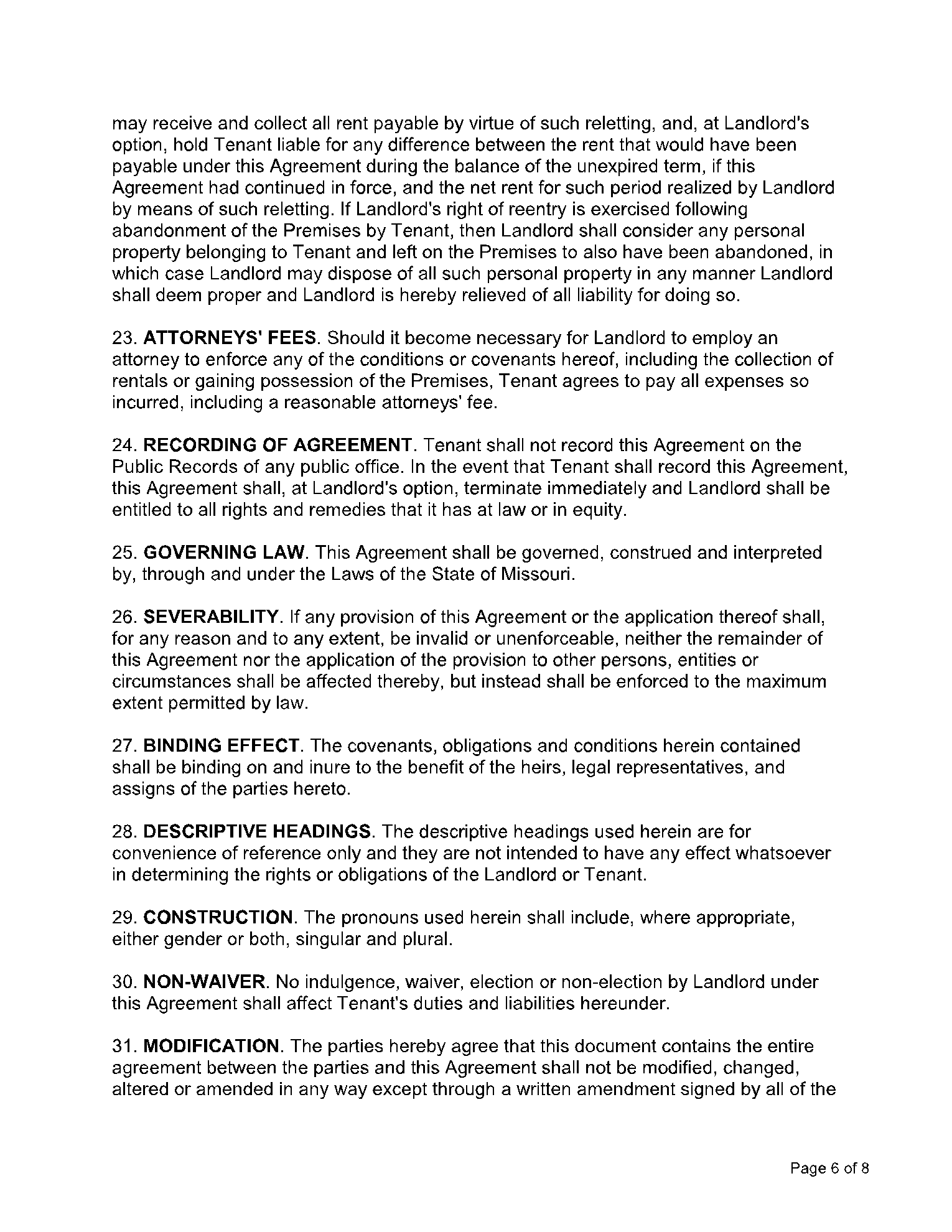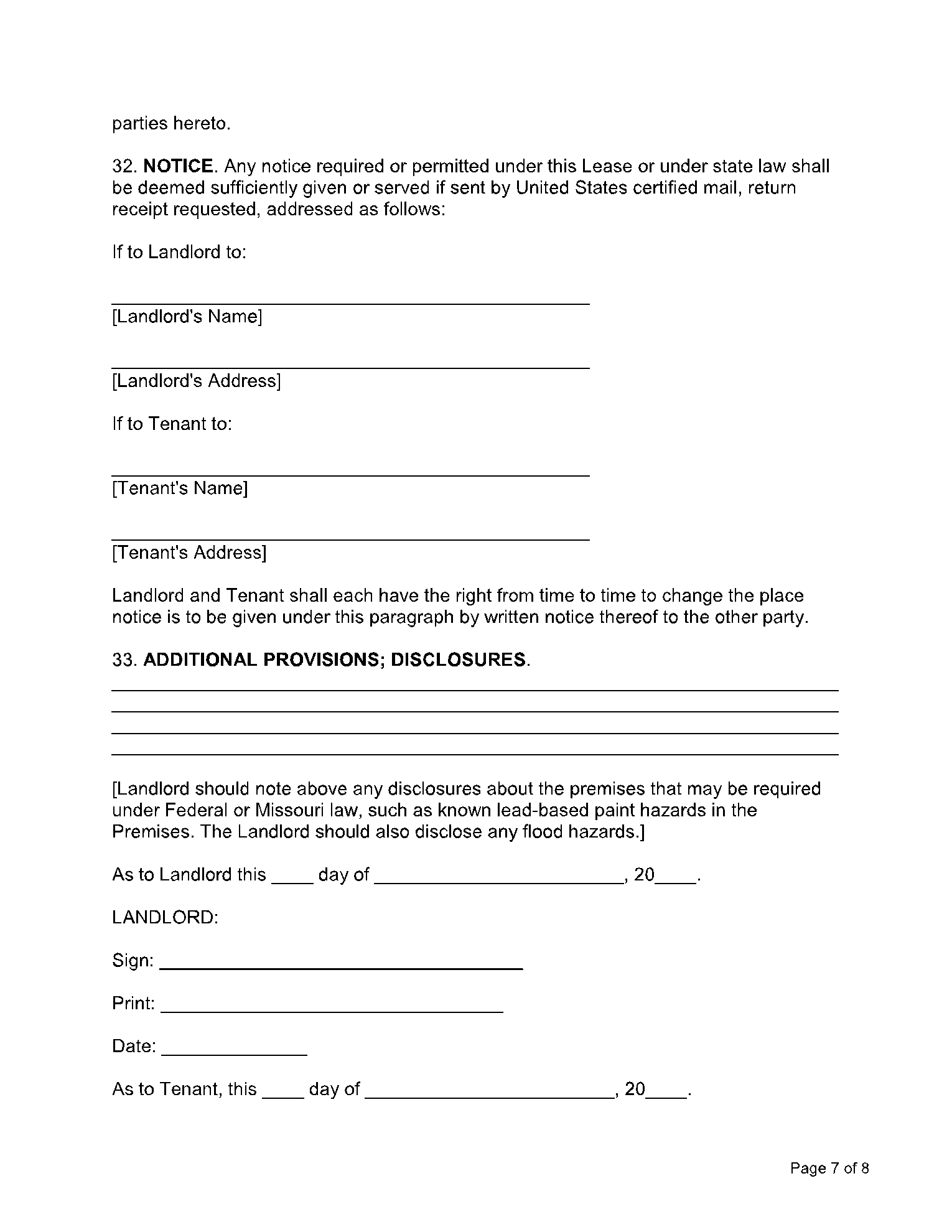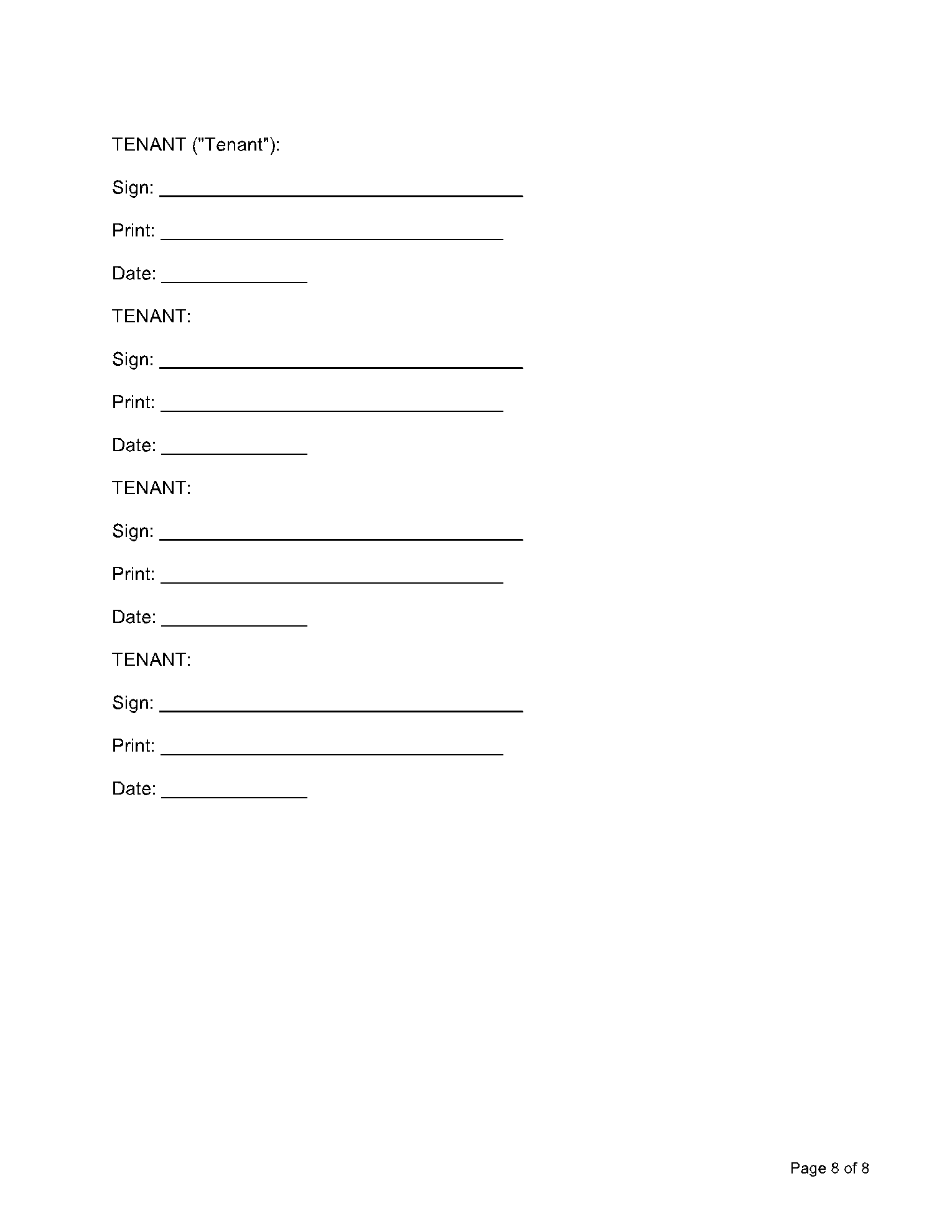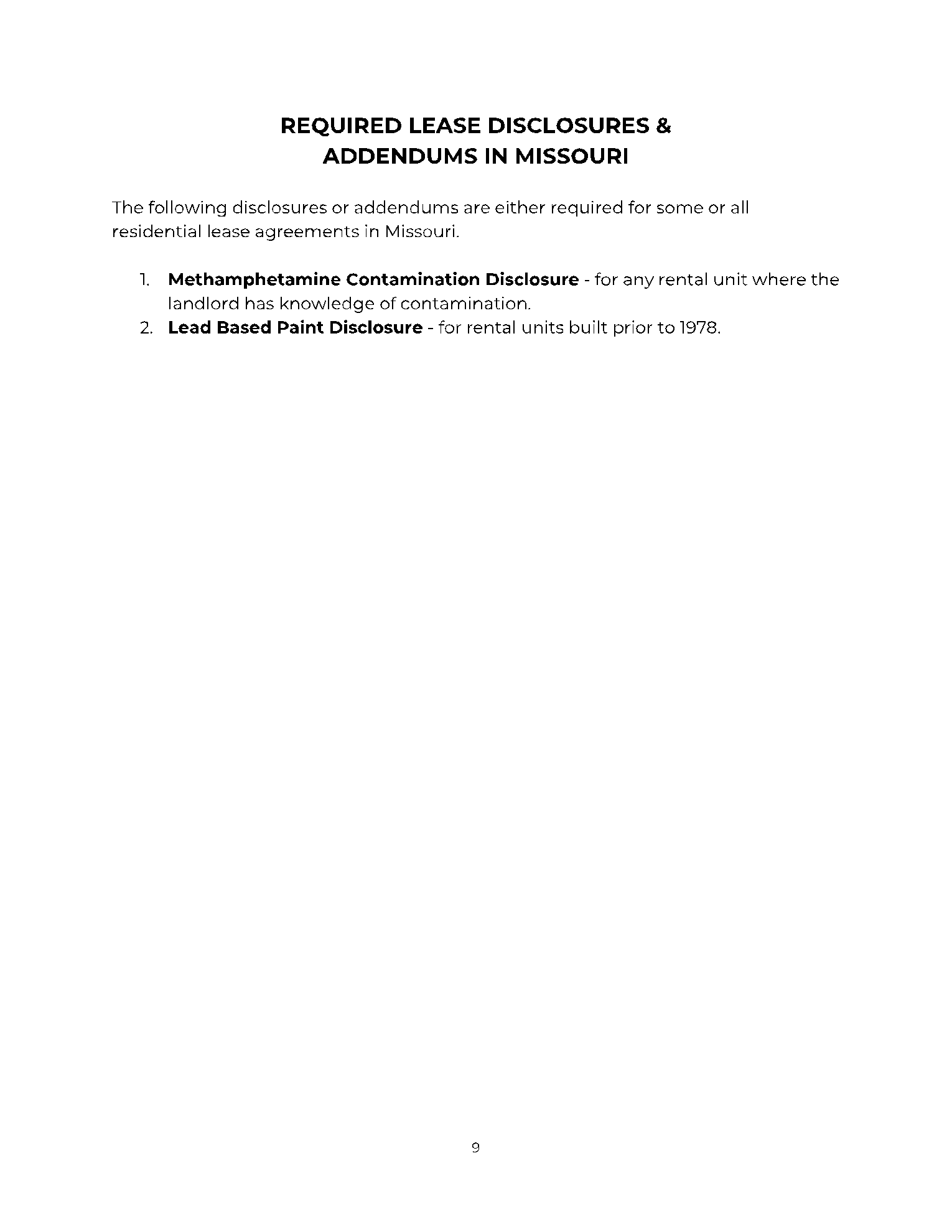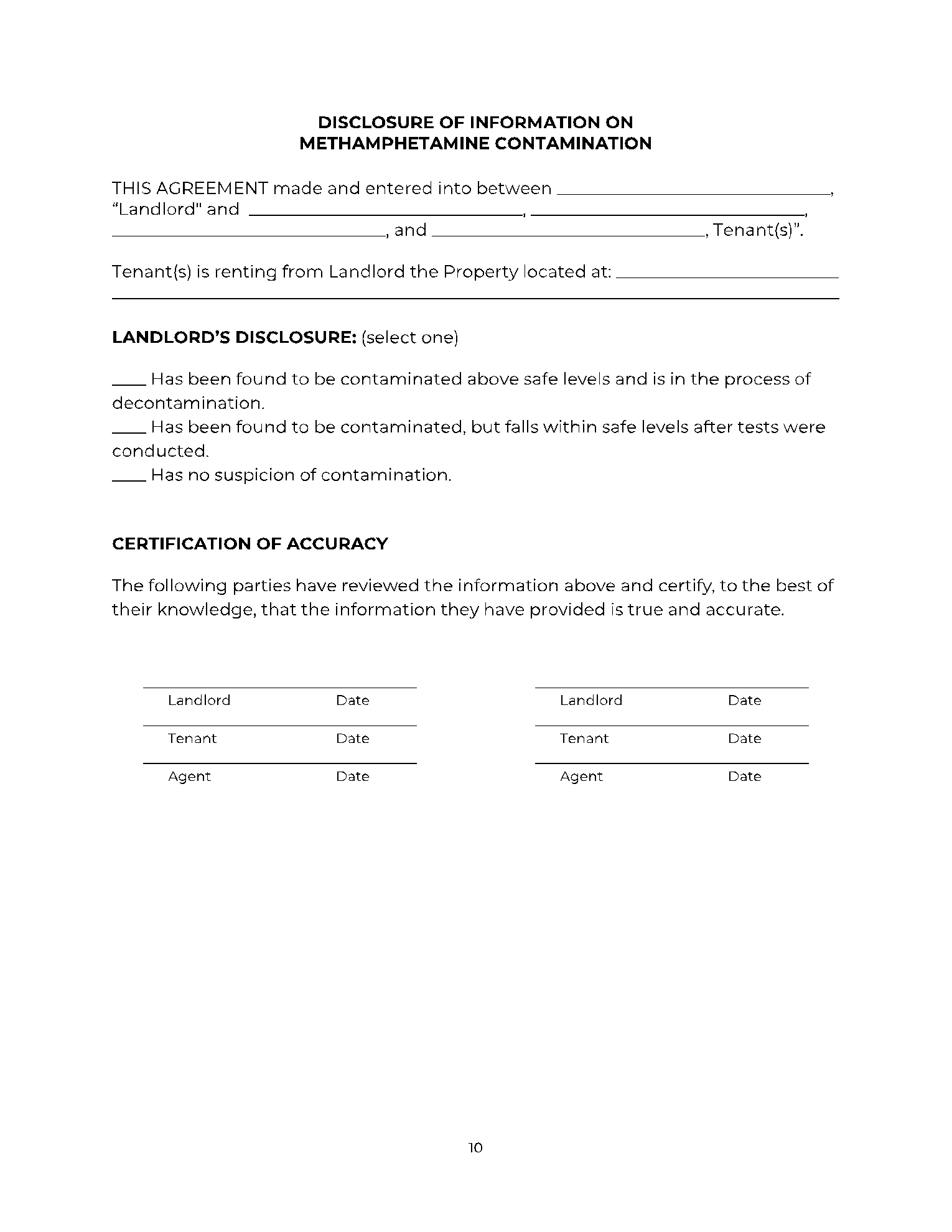Missouri is considered as the heartland region of the US. Renting a property in Missouri allows occupants to have easy access to major cities within the state.
When it comes to leasing property in Missouri, the rental lease agreement holds great importance. It is recommended for both landlords and tenants to abide by the terms and conditions as stated in Missouri rental agreement.
If you are searching for a rental property in Missouri or wondering what Missouri rental lease agreement includes, read on.
What Is a Missouri Lease Agreement?
The Missouri rental lease agreement is a legal document that outlines terms and conditions regarding the use of the rental unit. This contract is legally binding between landlord and tenants who are interested in leasing space on the landlord’s residential property.
This written contract requires the landlord to lease the property to a tenant for a specific period in return for a fixed rental payment every month. In Missouri, funds are paid by the tenant at the beginning of agreement terms, and on the 1st of every month, rent is paid.
Missouri rental agreement form covers the duration of the tenancy period, terms of payment, and other specific rules to live on the rental unit. Both landlords and tenants are required to agree to the stated rules and responsibilities.
Prior to signing the MO lease agreement, the landlord is recommended to verify the credentials of the tenant through a Missouri rental application. The background information of tenants ensures that they are financially eligible for leasing rental units.
After approving the tenant, the landlord collects a security deposit from the tenant to grant them access to rental property.
Missouri Landlord and Tenant Laws
Missouri landlords and tenants must understand the state laws so that they could deal with rent-related legal issues without needing a lawyer. The key landlord and tenant laws are as follows:
Security Deposit
Under Missouri laws, landlords can charge the tenant for a security deposit. Usually, Missouri tenants are required to pay 2-months’ rent as a security deposit. Furthermore, state laws limit when security deposits should be returned (i.e. within 30-days after a tenant moves).
Lawsuits against Landlord
Tenants may sue their landlord in small claim lawsuits such as for returning security deposits that amount to $5,000.
Withholding Rent
Missouri tenants can withhold rent; besides, they can exercise their right to ‘repair and deduct’ in case of landlord’s failure to manage main repairs.
Rent Rules
To regulate rent-related issues, Missouri laws limit how much time should be given to the tenant to pay their overdue rents. Usually, Missouri tenants must pay rent within 5-days before the landlord file for eviction against the tenant.
Termination and Eviction Rules
Missouri laws also specify how and when a landlord can terminate the tenancy period. Landlords are allowed to give the tenant an unconditional quit notice of 10-days for using rental premises for illicit acts.
Tenant Protection against Discrimination
As per Missouri laws, landlords must comply with fair housing rights. Landlords are prohibited from discriminating against tenants when leasing property.
Missouri Lease Disclosures & Addendums
Missouri residential lease agreement must contain the following essential disclosures and addendums.
Name & Address of Landlord
This disclosure is applicable to all residential units. The landlord must provide the tenant with his name and address in the MO lease agreement. Also, information about another authorized person who will act on behalf of the landlord should be disclosed.
Methamphetamine Contamination Disclosure
If the landlord knows about methamphetamine contamination on the rental unit, it must be disclosed in Missouri rental lease agreement. The disclosure must be made irrespective of the fact that the tenant is involved or convicted.
Lead-Based Paint Disclosure
Under US federal law, landlords must disclose the risks of the building that were built prior to 1978. Such buildings are at high risk of lead-based paints. Therefore, Missouri landlords must
- Fill out a lead-based paint disclosure form and attach this form to the MO lease agreement.
- Provide pamphlets approved by the Environmental Protection Agency (EPA) regarding the hazards of lead-based paint.
- Provide reports and records about the existence of any known lead-based paint in the rental unit.
Optional Disclosures & Addendums
Following optional disclosures and addendums can be added to the Missouri rental agreement. However, these disclosures are not required by law in agreement. Landlords often add these disclosures to prevent future liabilities and conflicts.
Medical Marijuana Use
Landlords are recommended to disclose information about the use of medical marijuana on rental property. Missouri landlords can restrict usage of marijuana to non-smoking methods, or they can control where tenants can smoke marijuana without interfering with other occupants.
Move-in Checklist
Landlords may also provide tenants with a move-in checklist regarding property damages. This list should be provided to tenants before they move-in.
Late and Returned Check Fees
The landlord should also disclose about late fees and returned checks in Missouri rental agreement form. Of note, late fees should not be more than 10% of overdue rent.
Also, late fees should be charged only after the agreed due date. Furthermore, fees for returned checks should not be more than $25 per bounced check.
Shared Utilities Arrangements
If there are shared utilities on the rental property, the landlord should disclose how utilities will be shared and how the bill will be calculated between each party.
Bed Bug Disclosure
Landlords should disclose the current status of bed bug infestation on rental property. They can also provide information on the protocol to manage the future infestation.
Asbestos Disclosure
Buildings that were built before 1981 are likely to pose risks of asbestos. Missouri landlords should disclose the existence of asbestos on rental property and its likely risks.
Mold Disclosure
Landlords are also recommended to disclose information to the tenant in the MO lease agreement regarding mold status on rental property. This disclosure can protect the property owner from future liabilities.
Conclusion
Now that you know about Missouri rental agreement and why it is important when leasing property, you can easily rent a property in Missouri State.
So, what are you waiting for?
Visit our website CocoSign now and download a great template for Missouri rental lease agreement. We also provide great templates for different legal agreements.
